Dale J. Stephens, author of the New York Times bestseller: "Hacking Your Education" wants concerned parents and their kids, to reconsider the necessity of a college education altogether. Having been "unschooled" from 6th grade to 12th grade, Stephens has always approached his education by taking the road "less traveled." Having won a $100,000 fellowship to NOT complete college, Stephens used the money to further develop his "UnCollege" philosophy.
Stephens shares his insights and offers up an enlightening take on why students should become more "proactive" in terms of getting the education they want in order to launch the kind of life they really want to live -- by any means necessary.
A. I wrote Hacking Your Education to help students make their own decisions about their education, and to encourage parents to let them.
Going to college is a decision that people especially need to pause and consider. Given the skyrocketing tuition fees and high unemployment rates after graduation, the opportunity cost of going to college is very high.
Q2. Your book contains a number of stories of people who have done things "their own way." Can you share the stories of the single mother from Chicago who got into computer programming and the Harlem-born music producer?
A. Tiffany Mikell was a single mother from Chicago who dropped out of high school when she was 15. After participating in a program called I.C. Stars, she learned how to frame her life experience as relevant job experience. Because of her kick-ass “I’ve-got-it” attitude, she later landed a job at Accenture doing Java development -- a skill that she learned on the job.
Geno Sims, who now manages relationships with emerging musical artists, grew up in Harlem. He opted out of college after one of his friends was killed at Virginia State, instead using free resources like the New York Public Library to learn more about music. By attending events and using his job at a record store, he built his network and eventually got the opportunity to manage
new artists for Sony BMG.
Both Tiffany and Geno had less than ideal backgrounds. What was the underlying reason for their success? Their similar hackademic mindsets.
Q3. Please describe the "UnCollege Movement" that you are spearheading?
A. UnCollege is an organization that encourages people take control of their education. After briefly attending Hendrix, I started it because of the idea that we’re paying too much for college and are learning too little.
For people interested in getting involved in the education revolution, we offer regular meetups, send out a weekly newsletter, and have cultivated a supportive online community of
"hackademics."
This year, we’re also pioneering a flagship Gap Year program to help students develop their capacity as self-directed learners.
A. The Thiel Fellowship offers young people grants of $100,000 to work on projects that aim to change the world. Not only has being an inaugural Thiel Fellow helped me gain credibility, it’s also connected me with an amazing community of mentors.
I would suggest students have a project going before they apply. Although I was initially rejected from the program, I was called back into the final interview round because the organizers were impressed with the work I was doing on UnCollege.
Even if you don’t become a fellow, it’s still important to always be working on a project that you care deeply about and want to pursue.
Q5. What specific advice do you have for parents who are still committed to the idea of their kids getting a college education? How should they approach the process?
A. Parents and students can start by asking themselves “Why college?” (as opposed to the commonly asked question: “What college?”).
Consider exactly what you want your child to get out of college. The job prospects? The social experience? The learning experience?
Then do your research: over 44% of college grads under twenty-five are unemployed or have jobs that don’t require a college degree. The social experience of college can easily be replicated by using the internet to connect yourself with people of similar interests. College students do a lot more hoop-jumping than they do actual learning.
If after this, you’re still committed to your child getting a college education, at least encourage them to approach it with a "hackademic mindset." Make sure they take personal responsibility for their education, have a concrete reason for why they’re there, and truly seek to make the most of it.
Above all, avoid having your child take out student loans. Please don’t force them into a position where they have to take a high-paying job that they dislike in order to settle their debts.
Q6. Despite growing public awareness, unschooling AND homeschooling remain "controversial" educational practices that requires an enormous amount of motivation, dedication and discipline. What specific advice do you have for parents who are seriously considering this educational path for their kids?
A. Unschooling is hard. It requires a lot more effort on the part of the student. That being said, it’s ultimately more rewarding.
For parents who are considering an alternative path for their kids, my one piece of advice is this: let them make their own decisions. Get them involved in the process, choosing for themselves what they want to learn and how. Developing this sense of agency is the purpose of getting an education.
A. Humans are inherently curious and open to learning. Becoming a self-directed learner is most definitely something that can be cultivated. Unfortunately, this often gets lost or forgotten in the rigid structure that traditional schools impose upon students.
The first step to encouraging your kids to become self-directed learners is to let them to explore and figure out what they’re actually interested in. Support them in their interests, but let them pursue it from there.
Q8. I love this point that you brought up in a New York Times interview that students should develop a "life syllabus." Can you elaborate as to how this fits into self-directed learning?
A. Self-directed learning should be holistic. Hackademics develop themselves mentally, professionally, and personally -- not just academically.
There are so many things out there that you can and should learn. Putting together a life syllabus helps you see that. Always have a running list of what you want to learn and achieve.
Q9. Is there anything else that you would like to share?
A. For parents and students who are stuck between traditional schooling and an alternative education, consider a gap year. It’s a good compromise between the two, and carries virtually no risk. Many colleges allow students to defer school for a year with just a brief explanation of purpose.
A gap year offers students -- particularly those that grew up going to traditional schools -- a chance to experience self-directed learning and to have awesome out-of-school experiences. If students end up going to college after that, they’ll know how to approach it with a hackademic mindset, and will therefore make more of their time there.
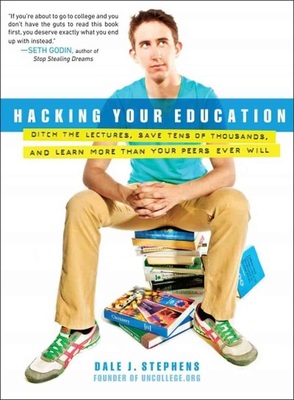
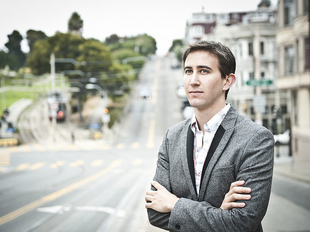
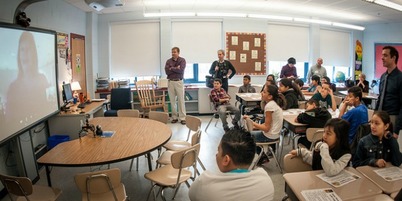
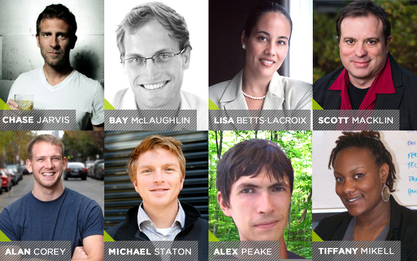
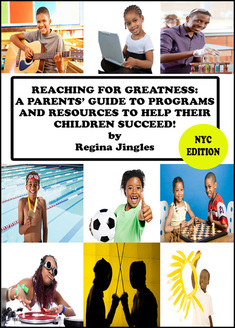
 RSS Feed
RSS Feed